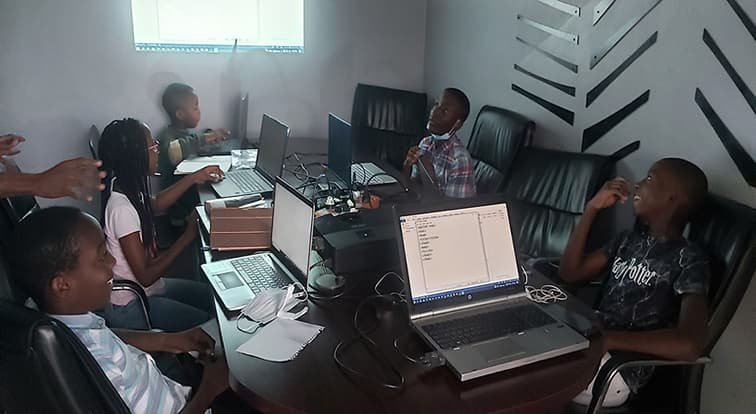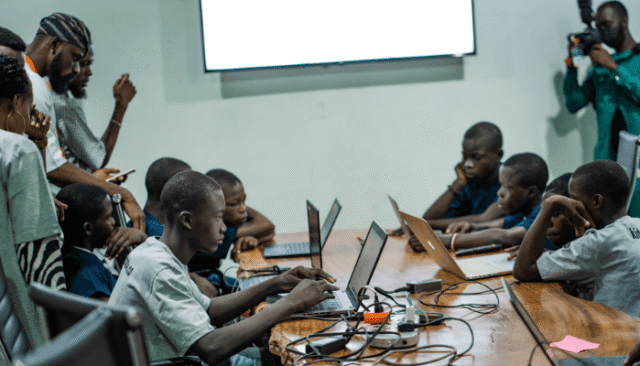A new wave of advocacy is sweeping through Nigeria’s educational and industrial sectors, as technology and education leaders converge to call for a transformative push in technical education. In response to growing concerns about brain drain and the urgent need to bolster industrial development, stakeholders are emphasising the significance of upskilling the nation’s youth in areas like artificial intelligence (AI), cybersecurity, and digital literacy.
Nigeria’s current industrial vision hinges on a workforce armed with cutting-edge skills—talents capable of steering the nation toward sustainable growth. Central to this pivot is a strengthened technical education ecosystem, driven by dynamic efforts from both public entities and private innovators.
Strategic Initiatives and Partnerships
In a landmark collaboration with the Bill & Melinda Gates Foundation, the Federal Ministry of Communications, Innovation, & Digital Economy recently inaugurated the Nigeria AI Scaling Hub in Abuja. With a funding commitment of around $7.5 million over three years, this hub is designed to accelerate the adoption of AI solutions across critical sectors, spanning health, agriculture, and education. The initiative unites multiple stakeholders—government, academia, nonprofits, and tech firms—to support Nigerian engineers and researchers in transforming pilot projects into scalable ventures.
Complementing this effort, Nigeria’s 3 Million Technical Talent (3MTT) Programme, launched in October 2023, aims to train three million young Nigerians in high-demand tech disciplines by 2027. Covering fields such as AI, software engineering, data science, cloud computing, and cybersecurity, the initiative already delivered training to 30,000 fellows in its first phase and expanded into several larger cohorts early this year
Alongside, Punch reports that the Federal Government, under the National Information Technology Development Agency (NITDA), is revising university curricula to integrate modules in AI, blockchain, Internet of Things (IoT), cloud computing, and cybersecurity. The reform aligns with the government’s Strategic Roadmap and Action Plan, empowering graduates with both academic credentials and market-ready technical skills.

Addressing the Digital Deficit
Despite these strides, Nigeria still grapples with a profound digital skills gap. Surveys indicate that approximately 85 percent of recent graduates lack basic digital competencies, significantly limiting their employability. Recognising this, NITDA has launched a “Digital Literacy for All” campaign targeting 70 percent digital literacy by 2027, focusing on foundational skills, safe internet usage, and digital productivity.
On the tertiary front, the newly drafted National AI Strategy reflects the strategic importance of nurturing local talent and ensuring Nigeria remains competitive in the global technology race. Reports also reveal that Nigeria has provided AI training to over 200,000 individuals through federal initiatives and national workshops.
Combating Brain Drain with Local Opportunities
A strong current in the debate is the call to mitigate brain drain by creating high-quality, local tech opportunities. Experts argue that enriching Nigeria’s research and commercial landscape with innovation hubs, grants, and competitive salaries can entice talent to stay.
At the heart of this are vibrant public–private partnerships. Educational platforms like AltSchool Africa, launched in 2021, have attracted 20,000 learners beyond Nigeria, signaling a regional appetite for locally led digital education. Meanwhile, student organizations like the Nigeria Association of Computing Students (NACOS), with over one million members, are lobbying for better tech training and industry-backed support.
The Broader African Context
Nigeria’s ambitions mirror broader trends across Sub‑Saharan Africa, where escalating demand for digital skills is driving transformation. The World Bank recently emphasized that more than 230 million jobs in the region will require digital competencies by 2030, creating nearly 650 million training opportunities.
Given West Africa’s spike in advanced digital enrollment, countries like Nigeria are uniquely positioned to pioneer this shift. However, regional reports also reaffirm that substantial investment is still needed in tertiary education, modern governance, and digital infrastructure to fully realise this potential.
Minister of Innovation, Science and Technology, Chief Uche Nnaji, recently revealed that federal training programs have empowered over 200,000 Nigerians in AI, aligning with broader goals of sustainable development, particularly bridging research with practical innovation. Industry stakeholders further note that increasing cybersecurity preparedness across universities is also vital to safeguarding Nigeria’s emerging digital infrastructure.

The Road Ahead
To cement these efforts, several critical actions are being recommended:
- Modernised Curricula: Embed advanced digital disciplines in secondary and tertiary education.
- Scaled Upskilling: Expand initiatives like 3MTT and the Digital Literacy drive to reach rural and underserved communities.
- Strengthened Partnerships: Deepen collaboration with international institutions—such as Georgia Tech and the Gates Foundation—and bolster private sector engagement.
- Digital Equity: Ensure internet, devices, and data protection measures are accessible nationwide.
- Supportive Ecosystems: Foster innovation through funding, labs, and career pathways that retain local talent.
Why This Matters
This renewed push for tech education to drive industrialisation is more than policy—it’s a strategic transformation. By embedding digital skills into the heart of Nigeria’s workforce development, the country positions itself for accelerated economic diversification, reduced brain drain, and heightened global competitiveness. The window to act is now, and millions of tech-armed Nigerian youths stand ready to lead the charge.
Join Our Social Media Channels:
WhatsApp: NaijaEyes
Facebook: NaijaEyes
Twitter: NaijaEyes
Instagram: NaijaEyes
TikTok: NaijaEyes








































